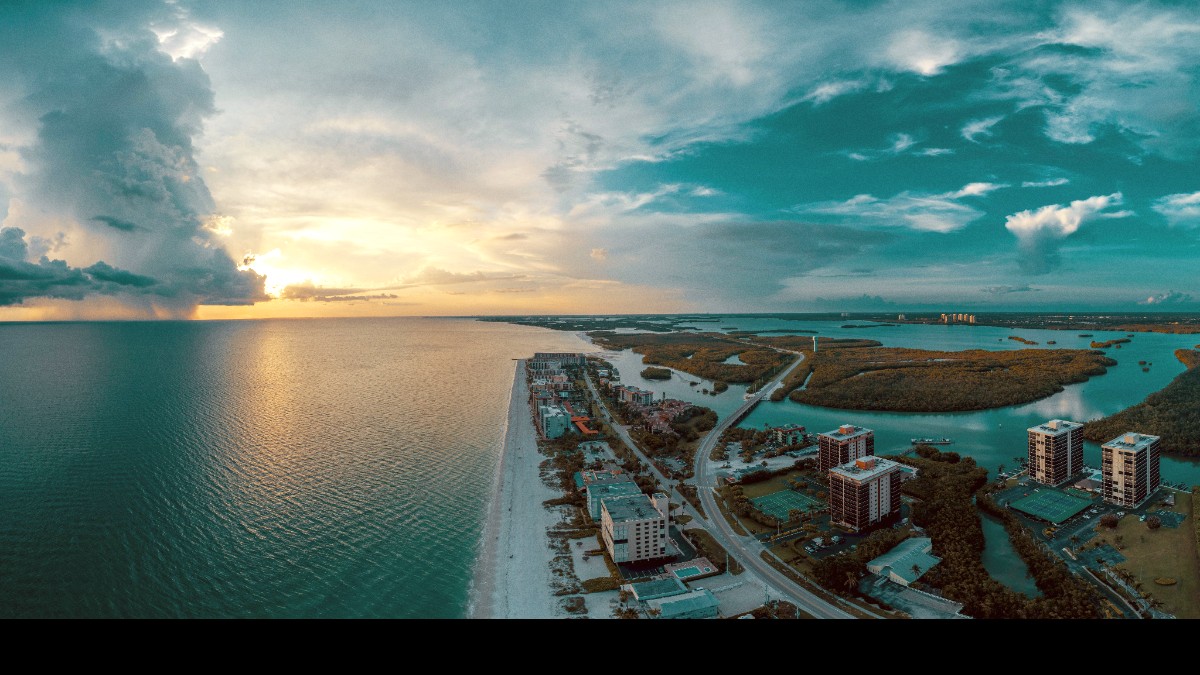
Florida, USA
Winter (December - February): This period has the most pleasant weather. Average daily temperatures range from a comfortable 55°F (13°C) to 70°F (21°C). Days are generally sunny and dry, with low humidity. Mornings and evenings can be cool, sometimes dipping into the 40s°F (4-9°C), but afternoons warm up quickly. Rain is infrequent, making outdoor activities enjoyable. This is a popular time for visitors escaping colder climates.
Spring (March - May): Spring brings warmer temperatures and increasing humidity. Daily averages range from 65°F (18°C) to 80°F (27°C). Rainfall is still relatively low compared to summer, but you might encounter occasional showers, specifically as May approaches. The weather remains pleasant for beach days and exploring attractions, though late spring can begin to feel quite warm.
Hurricane Season: June 1 to November 30. Peak months for hurricane activity are August, September, and October. Travelers visiting then monitor weather forecasts closely. Consider Travel insurance that covers hurricane-related disruptions, including trip cancellation or interruption. Local authorities issue alerts and evacuation orders if a hurricane threatens. Heed all official warnings.
Extreme Temperatures: Summer months regularly experience high temperatures with high humidity. This may mean heat index values above 100°F (38°C). To avoid heat-related illness, stay hydrated by drinking plenty of water, use High-SPF sunscreen generously, wear protective clothing like a Wide-brimmed hat and UV-protective clothing, and seek shade or air-conditioned environments during the hottest parts of the day (typically 10 AM to 4 PM).
January - April
Weather is best, with mild temperatures and low humidity, ideal for all outdoor activities.
Higher prices for accommodations and flights. Larger crowds at popular attractions and beaches. Advance bookings are standard.
May, October - November
Good weather, especially in October and November. Smaller crowds than high season. Accommodation prices generally better.
May can be hot and humid. Hurricane season extends through October and November.
June - September
Lowest prices for accommodations. Ocean temperatures very warm for water sports. Fewest tourists.
Weather is very hot and humid. Daily afternoon thunderstorms are common. Peak hurricane season, leading to trip disruptions.
Launches occur year-round. Check official launch schedules from NASA and SpaceX closer to your travel dates for viewing. Launch dates and times are subject to change due to weather or technical issues. Flex your schedule for potential delays.
April-May and October-November bring pleasant beach weather. Summer works for swimming due to warm water, but be mindful of daily thunderstorms and intense heat. Winter for long beach walks. Manatee viewing best in cooler months (November-March). Bird migrations prominent in spring and fall.
Consistent waves found year-round.
Larger swells occur during fall and winter, influenced by cold fronts and distant hurricane activity.
Summer small, manageable waves, good for beginners.
Always check local surf forecasts for conditions.
Rentals and lessons available in Cocoa Beach.
These requirements vary depending on your nationality.
Citizens of certain countries can enter the U.S. For tourism or business for up to 90 days without a visa. This needs an approved ESTA. Apply for your ESTA online.
If your country is not part of the VWP, or if your trip extends beyond 90 days, you must apply for a non-immigrant visa, like a B-2 Tourist Visa.
Plan your budget for a Space Coast trip. Costs vary based on your travel style, from budget-conscious to luxury experiences. The official currency is the United States Dollar (USD, $). ATMs are widely available for cash. Major credit cards are accepted almost everywhere.
Be aware of potential risks and prepare effectively.
Measles, Mumps, Rubella (MMR), Diphtheria, Tetanus, Pertussis (DTaP), Polio, Varicella (Chickenpox).
If traveling during flu season.
Consult a travel doctor or your general practitioner weeks before your trip.
Sunburn/Heatstroke
Florida experiences high UV index levels. Sunburn and heatstroke are common. Use high-SPF sunscreen, wear protective clothing, stay hydrated, and seek shade during peak sun hours (10 AM - 4 PM).
Mosquito-borne illnesses: While rare, Zika virus, West Nile virus, and dengue fever have been reported. Use Insect repellent containing DEET or picaridin, specifically at dawn and dusk. Wear long sleeves and pants.
Marine life: Be aware of jellyfish and stingrays. Shuffle your feet when entering water. Pay attention to beach flag warnings.
Holmes Regional Medical Center (Melbourne), Health First Palm Bay Hospital (Palm Bay), Parrish Medical Center (Titusville).
Numerous clinics for non-emergency medical issues, often more cost-effective than emergency rooms.
Major chains like CVS and Walgreens are widespread for prescriptions and over-the-counter medications.
The Space Coast is generally safe for tourists. Exercise caution and awareness, especially at night or in unfamiliar areas.
Travel insurance is highly recommended. It offers a financial safety net for unforeseen events. Look for policies that cover medical emergencies, evacuation, trip cancellation/interruption, and lost luggage. Consider "Cancel For Any Reason" (CFAR) coverage for maximum flexibility, especially during hurricane season.
Emergency (Police, Fire, Ambulance): 911 (Toll-free from any phone)
Non-Emergency Police (Brevard County Sheriff's Office): +1 321-264-5210
Carry a list of these numbers. Keep a small card with your name, any known allergies, and an emergency contact number in your wallet.